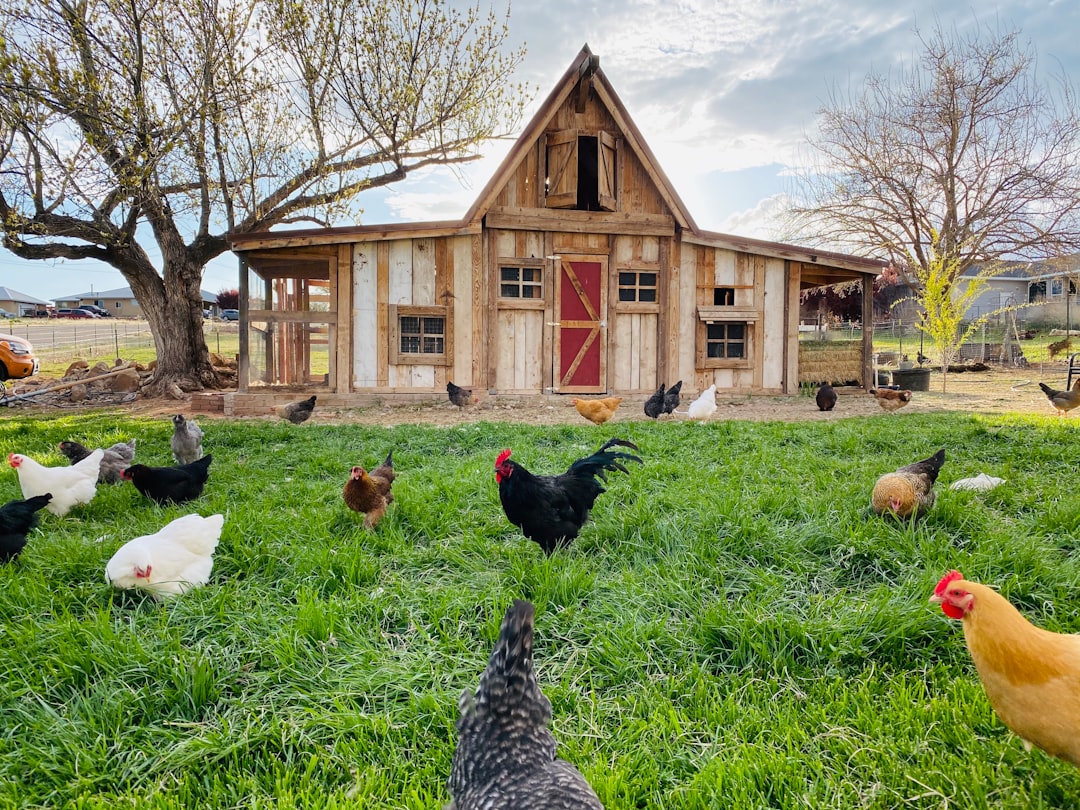Gardening with chickens in mind.
Also nine pdfs about raising chickens - ebook lengths, also including some for tropical climates. One on incubating the eggs. My grandma had chickens, an egg route, and her own income as a farmwife.
It is liberating to produce your own supplies. Egg yolk is rich in choline, good for prenatal health and everyone else too. Egg yolk may also be protective against SARS-CoV2.
There has been some concern that commercial chicken feed has caused chickens to stop laying eggs. Switching to goat feed helped some farmers. Homesteaders with a kitchen garden can grow for the chickens too. Many healthy herbs and greens are favorites of chickens and a few other common plants should be kept away from fre range chickens.
Some plants will thrive right in the chicken yard providing shade for the chickens and flowers or produce for the gardener. Various bushy sages, English lavender, lemongrass, rosemary, rose trees, a fig tree, climbing roses if protected initially. Chickens keep it fertilized and free of other weeds. Calendula, kale, broccoli or beet greens, and other greens are a favorite of chickens but won't survive free range pecking - share the clippings.
Plants that Thrive and Survive in my Chicken Run, Dawn Russell, (treatsforchickens.com)
A longer list of plants that are very healthy to grow for feeding chickens is available by thehomesteadinghippy.com: Forty Plants to Grow for Chickens (*includes plants to keep chickens out of - harmful for them).
The list of healthy plants to share with chickens includes produce, edible flowers, and some common garden weeds that are beneficial - for humans too - a good list:
Fennel, nasturiums, parsley, mint, chicory, cucumbers, wheat, alfalfa (seeds), cabbage, comfrey, stinging nettle, cover crops, sprouted grains (in the winter months), leafy greens, berries, broccoli and cauliflower, garlic, melons, sunflower seeds, peas, sweet potatoes, radishes, beets, sorghum, crabapples, dandelions, sweet corn, thyme, lavender, sage, oregano, plantain, white clover, lemon balm, carrot greens, Siberian pea shrub, currants, pumpkin, and chickweed. (thehomesteadinghippy.com)
Plants to keep chickens away from for the sake of the chicken's health include quite a few popular flowers, some trees, and a few common vegetables:
Oak, Holly, Yew, Bracken ferns; Honeysuckle, Hydrangea, Daphne shrub, Azaleas and Rhododendrons, Tulip, Daffodils and Narcissus, Lobelia, Periwinkle, Irises, Foxglove, and Lupine; Apricots, Eggplant, Tomatoes, Potatoes, and Rhubarb. (thehomesteadinghippy.com)
Link via a reply by Rick.

Other resources about raising chickens - pdfs in my Dropbox:
Pratt's Practical Pointers on the Care of Livestock and Poultry, ebook, (58 pages) (pdf)
Agrodok 4 Small-scale chicken production, by N. van Eekeren, A. Maas, H.W. Saatkamp, M. Verschuur, Agromisa Foundation and CTA, Wageningen, 2006, (91 pages) (pdf)
Agrodok 34 Hatching eggs by hens or in an incubator, by Nivo van Wageningen, Johan Meinderts, Puck Bonnier, Henk Kasper, Agromisa Foundation, Wageningen, 2004. (pdf)
A Small-Scale Agriculture Alternative: Poultry, by Phillip J. Clauer, Poultry Extension Specialist, Animal and Poultry Sciences, Virginia Cooperative Extension, (6 pages) (pdf)
Version 14.03.2001 Controlling Newcastle Disease in Village Chickens, A Field Manual, by Robyn Alders and Peter Spradbrow, (84 pages) (pdf)
The Practical Poultry Keeper, last edition 1904, (344 pages), (pdf)
EM 32 The basics of chicken farming (in the tropics), by Bart Gietema, Agromisa Foundation, Wageningen, 2005. (170 pages) (pdf)
EM 33 Lector notes on chicken farming in warm climate zones, by Dr. E.H. Ketelaars, Agromisa Foundation, Wageningen, 2005. (128 pages) (pdf)
Agrodok 4 Small-scale poultry production in the tropics, by N. van Eekeren, A. Maas, H.W. Saatkamp, M. Verschuur, Agromisa Foundation, Wageningen, 2004. (81 pages) (pdf)
*This post was actually written for my peace-is-happy.org site, but maybe some readers here like chickens too. It is in the Peace is Biodiversity category.
Disclaimer: This information is being provided for educational purposes within the guidelines of Fair Use and is not intended to provide individual health guidance.




I love this! I think I mentioned here in comments before that we raise chickens! We’ve got eight hens and one rooster, but plan on getting a few new chicks this spring as well as 4 ducks! It’s such a wonderful thing to do and it’s fantastic for those who practice permaculture food crop growing principles as we do!
Excellent healthy advice!